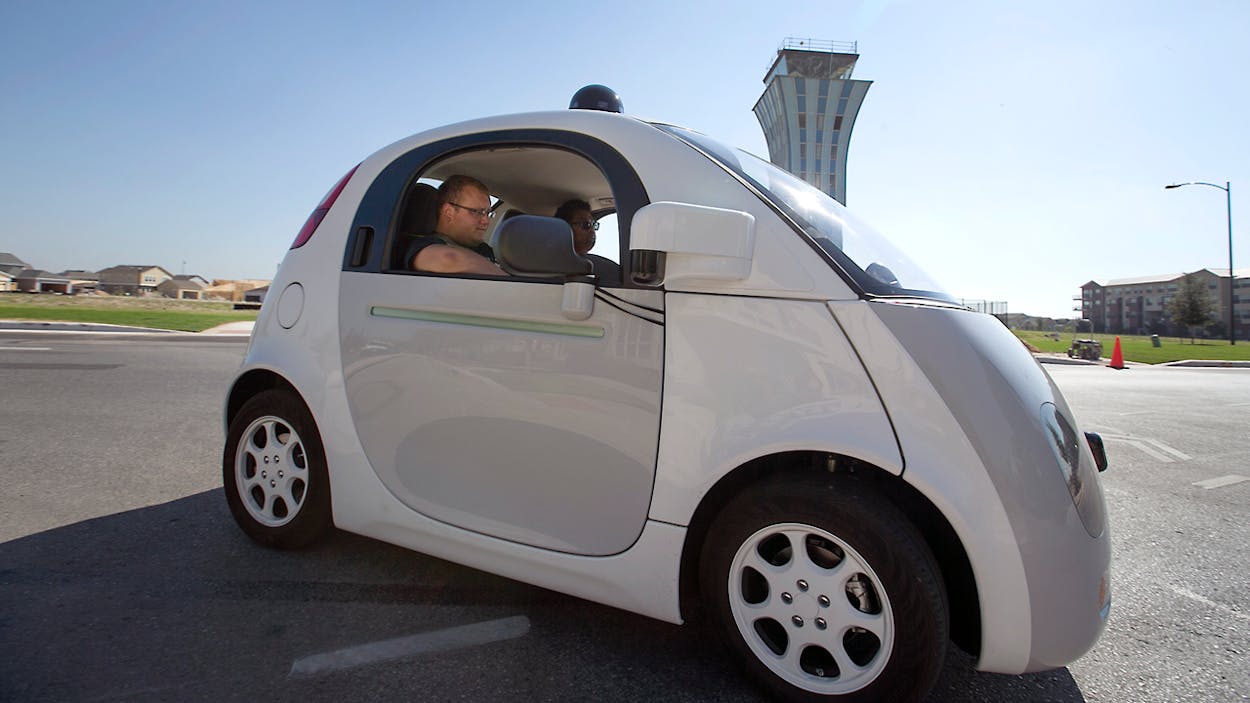This generation may have missed out on flying cars, but, fellow Texans, one day soon we might have the opportunity to own and operate our very own KITT. Granted, the self-driving cars we’ll have access to aren’t exactly as badass as a Pontiac Trans Am, but, hey, self-driving cars still drive themselves. Pick your battles. Anyway, a number of companies are looking to get these cars on the roads as soon as possible. Lucky Swedes might be able to get their hands on these by 2017 thanks to Volvo; Ford is looking at a 2019 release too. But, tech innovator Google is looking to push these out as quickly as they can. In Texas. As early as next year.
Since 2009, Google has been testing its self-driving cars in Mountain View, California, where the company is headquartered, but in the summer, the company began testing its self-driving cars in Austin. While it’s great to try this new technology in different environments, which the company has acknowledged, there was another advantage to setting up shop in the Lone Star State: less red tape.
In 2013, Google showcased a self-driving car the state’s capital and as the Texas Tribune pointed out at the time, the company didn’t seek permission from a state or local agency—because they didn’t have to: our state has no limitations for vehicles without steering wheels or pedals.
Google has run into some, ahem, roadblocks in its home state. In 2012, Governor Jerry Brown signed legislation that gave California’s Department of Motor Vehicles until January 1, 2015, to draft regulations. While the DMV plans to finish and release regulations that address safety concerns, it hasn’t happened yet, and Google is growing impatient.
However, Texas’s lax regulations has given Google free reign in Austin, and the initiative that allowed the company to bring self-driving vehicles to the city was backed by mayor Steve Adler. Very heartily. According to the Associated Press, Adler gave a press conference praising Google’s self-driving cars and its enormous benefits to society—using talking points actually drafted by Google with tweaks made by Adler’s office:
Austin is special in part because we welcome new technologies that could help improve our daily lives, and we can easily see the potential self-driving cars have to reduce accident rates and congestion, and to provide mobility for people who can’t get around easily.
A spokesperson of Adler’s denies that the mayor knew Google sent a draft to aides, but that both Google and Adler share a similar vision.
As for legislation being drafted in Texas that would regulate self-driving cars, it’s being considered, but won’t be possible until 2017 when the Texas Legislature meets again. This allows Google to potentially begin a small pilot project rollout next year.
The great news here: self-driving cars are expected to reduce traffic and accidents. It has been predicted that the cars could reduce the number of car accidents by 90 percent, saving 300,000 lives a decade in the United States. And even better, they’re expected to curb traffic congestion, which is something the average driver is much more worried about than getting in an accident because traffic from hell in Texas is inevitable.
One thing magical robot cars apparently won’t solve though, is getting stopped by the police, so have your licence and registration handy.






